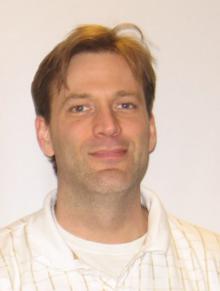Faculty Experts

Erik Wielenberg
Blair Anderson and Martha Caroline Rieth Chair in Applied Ethics and Professor of Philosophy
Wielenberg holds a robust form of moral realism according to which (i) moral properties are sui generis, not reducible to other kinds of properties and (ii) objective morality requires no foundation external to itself. He argues in particular that objective morality does not require a theistic foundation. He explains this view and defends it against various challenges in "Robust Ethics: The Metaphysics and Epistemology of Godless Normative Realism" (Oxford 2014). In 2018, Wielenberg participated in a debate about the foundation of morality with prominent Christian philosopher William Lane Craig.
In recent years Wielenberg has become increasingly interested in psychology and its connections with philosophy. For example, in a couple of papers he argues that the presence of psychopaths in the world presents a serious problem for the divine command theory, and in a chapter for the book "Humility" (Oxford 2019) Wielenberg draws on work in positive psychology to develop a secular account of humility.
Media Publications:
"The Moral Argument for God's Existence; or, How I Learned to Stop Worrying and Love Godless Morality", The Philosopher's Magazine -- https://archive.philosophersmag.com/the-moral-argument-for-gods-existence-or-how-i-learned-to-stop-worrying-and-love-godless-morality/
"I Think, Therefore I Am Misunderstood", Newsweek --
Scholarly Publications:
Value and Virtue in a Godless Universe (Cambridge University Press, 2005)
God and the Reach of Reason: C.S. Lewis, David Hume, and Bertrand Russell (Cambridge University Press, 2008)
Robust Ethics: The Metaphysics and Epistemology of Godless Normative Realism (Oxford University Press, 2014)
“On the Evolutionary Debunking of Morality,” Ethics 120 (April 2010), 441-464.
“God, Morality, and Meaning in Cormac McCarthy’s The Road,” The Cormac
McCarthy Journal 8:1 (2010), 1-16.